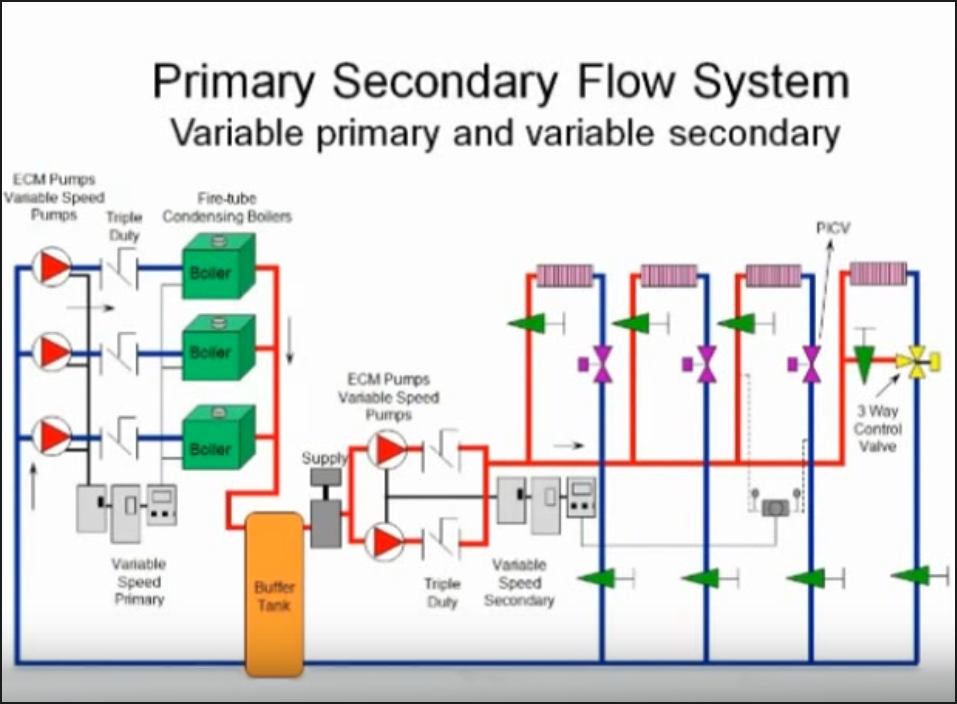How to Pick a Centrifugal Pump Part 1: Designing for Owner Satisfaction
/By Chad Edmondson
Hydronic pumps all do the same basic thing—they circulate water. So why are there so many different types and configurations? And what criteria determines the best pump for a given application? That’s what we will be exploring in this series on How to Pick a Centrifugal Pump, beginning with a look at the factors that will, to one degree or another, impact the owner’s satisfaction.
Certainly, all of the factors listed below are important considerations when selecting a pump, but their level of importance to the owner will vary from one project to the next. As engineers, we need to be able to evaluate what factors will matter most to the individual client. These factors include:
First Pump Cost (True Installed Cost). Cost always matters, but as a general rule, if developers will own the building for a short time, it trumps other factors such as operating cost and life expectancy. A good example of this would be a multi-unit commercial property or a strip shopping center. Operating costs may be passed on to the tenant and the developer may view the first cost as a higher priority. A university, on the other hand, is typically more inclined to pay more in the first cost for greater life expectancy and higher efficiency.
Pump System Efficiency (True Operating Cost). Heavy use facilities like hospitals, manufacturing facilities, and university buildings will benefit the most from high-efficiency pump systems. The owner of a rental property, who simply passes the charges onto the tenants may be less interested in paying top dollar for high-efficiency equipment.
Pump Life Expectancy and Reliability. Life expectancy is likely to be a top priority for any owner that pays a high penalty for downtime. For example, manufacturers (i.e. pharmaceuticals) stand to lose a lot of profit when operations must be shut-down in order to replace a pump.
Ease of Pump Service and Maintenance. What is the expertise level of the facility personnel? Will there be a mechanical specialist on staff to service the pumps, or are such duties likely to be delegated to an outside service provider? Does the pump require special rigging? Is there a safety concern when serving the pump? How often will service be needed?
Pump Floor Space. Like equipment cost, saving floor space is a high priority for just about any owner. This is particularly true for high-value properties such as Class A office space, where every square foot is looked upon as revenue generating space. In these cases, especially, owners want to keep mechanical rooms as small as possible, which often impacts pump selection.
Seismic Concerns. Is the facility in an area that is categorized as vulnerable to seismic activity (e.g. earthquakes)? If so, pump selection and installation must take this into account.
Local Parts Availability and Vendor Support. Few things frustrate an owner or facility manager more than lack of quick access to parts, service, knowledge, or overall support for mechanical equipment. It’s important that engineers select brands that have established vendors within close proximity to the owner.
Over the next several blogs we will explore these factors in greater detail, providing insights on how to prioritize them for long-term owner satisfaction.



